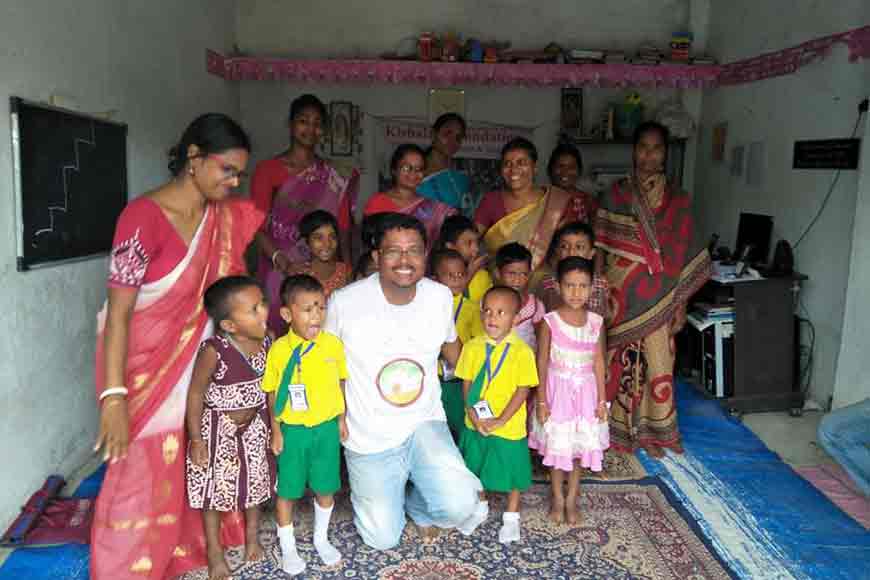IIM graduate who is changing lives in Sunderbans

Saheli Mitra speaks to Biplab Das on how he is changing lives in Sunderbans.
• Despite being an IIM graduate, what motivated you to start Kishalay Foundation, instead of continuing with a high-paid corporate job?
I founded this initiative in 2013, while working with Accenture. I am still working with them and plan to be 100% available for my Foundation in the near future. Till class 10, I studied in a rural school, named Rangabelia High School in Sunderbans. Our head teacher, Tushar Kanjilal, who later was awarded Padmashree, inspired me a lot. He showed us how one person can change an entire rural belt. Though he didn’t work directly on early education, he implemented Tagore’s rural development thoughts and transformed the whole area.

• Who all were involved when you started this foundation?
Me and my IIM batchmate, Saurabh Kumar from California, initially started with the idea of working in early education in remote India. Later my Accenture colleague, Soumitra Dandapat and my old friend Jhilam Nandi, joined to form the core team. Now we have Arnab Adhikari, Asst. Prof, IIM Ranchi, who is also on our advisory board.

• Who helped you in this venture financially and logistically?
I and Saurabh Kumar provided initial corpus and we are still supporting the foundation financially. Few batchmates also joined in. We are also doing crowdfunding campaigns on Ketto, but yet to get any CSR partnership, despite having 80G exemption.
The core team is also involved in fund raising. So far, government participation is not there. We have sent a fax to the Education Secretary for support, but we are yet to con-nect.

• Tell us something on the centres
Currently centres are spread in different islands (Godkhali, Gosaba-Dulki, Harekrish-napur, Manmathanagar, Shibgaunge-Jharkhali & Jhaukhali) of Sunderbans. We are also starting a centre in West Medinipur district. We have approximately 300 students at our centres. Apart from this, we also have regular interventions in 20-25 government run primary schools. Day scholars come to our centres. Other than Godkhali, all our centres are in impoverished areas.

• What response did you get from the villages?
Initially, there was resistance. So, we tried to gain trust and apply change management ideas. My childhood in a rural background also helped.

• What kind of children come to your schools?
Mostly children of farmers and daily wage labourers. We also have a good percentage of children from the minority community.

• What difference do you feel you and your team are bringing to their lives?
We are dedicated towards holistic education, to improve learning outcome of the kids. Though we are giving emphasis on English, but education is provided linking rural environment. We need to see a change in rural thinking and creating intellectual capital, out of rural areas. Not just getting educated and migrating to cities.

• How do you intend to take the foundation forward?
Right now, we are working on creating a template for rural early education transformation in Sunderbans. With more support, we can replicate this model in other parts of Bengal.

• You are an inspiration to all. What is your message for the young generation? How do you think they can make a difference to the society just the way you are doing?
India is still facing some serious gaps in early education, health and sanitation, particularly in rural areas. This is extremely important for us to take best practices to rural areas, where 70% of the country’s population live. Else, India will never become a developed nation. In some areas we are still comparable to only African countries, though we have done so much progress in technology and other spheres. Young generation can volunteer, even if they cannot contribute financially. Those who are serious, can look into social entrepreneurship, which will only grow from here.









